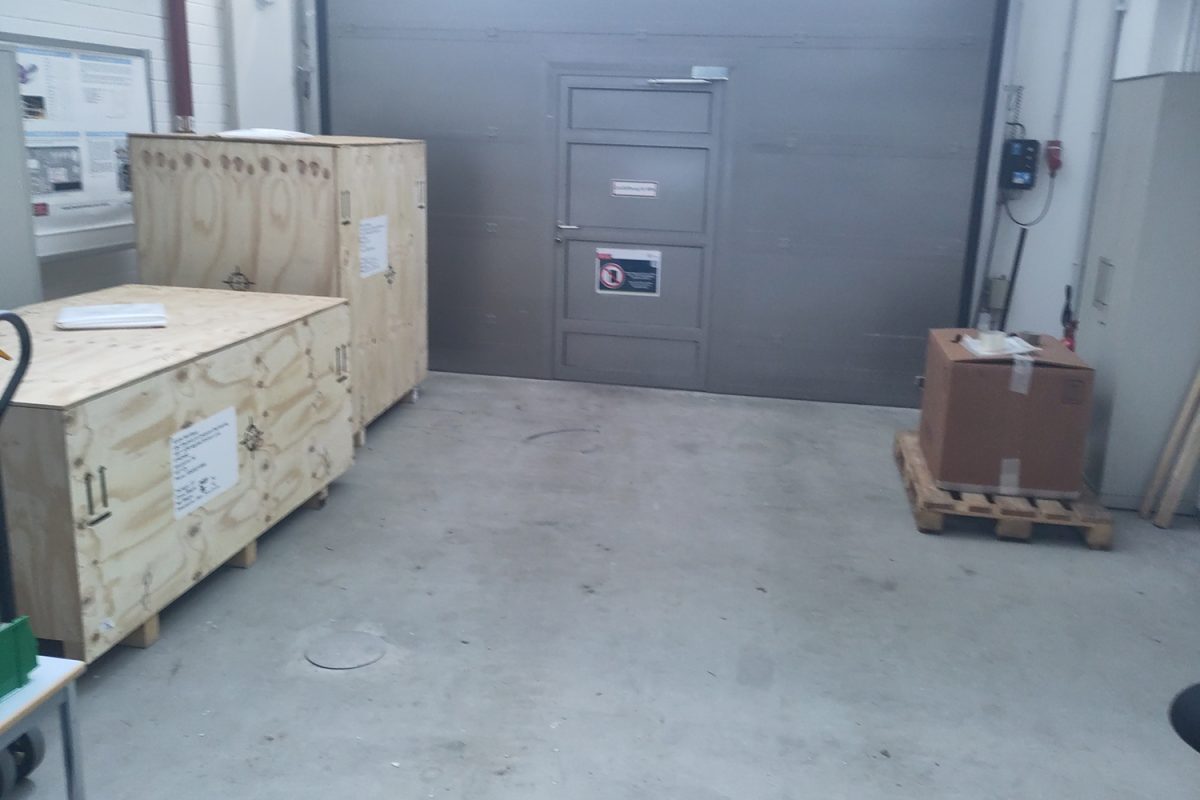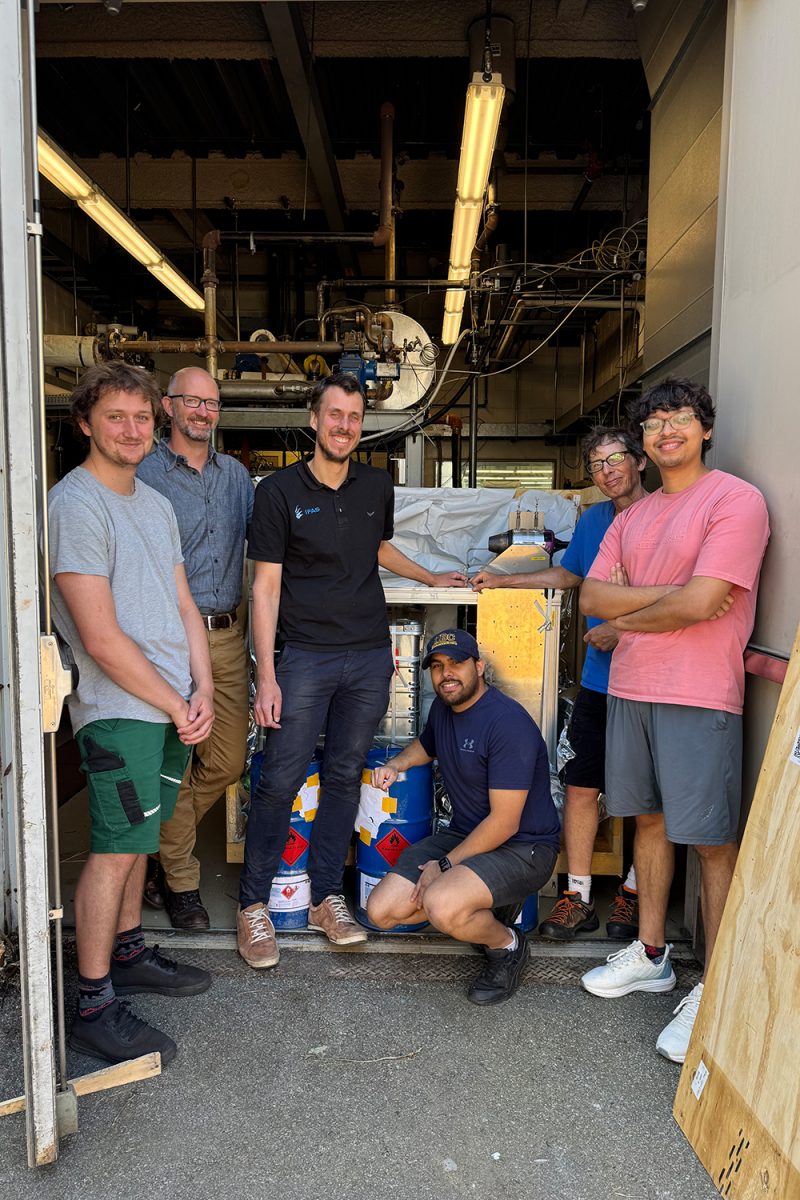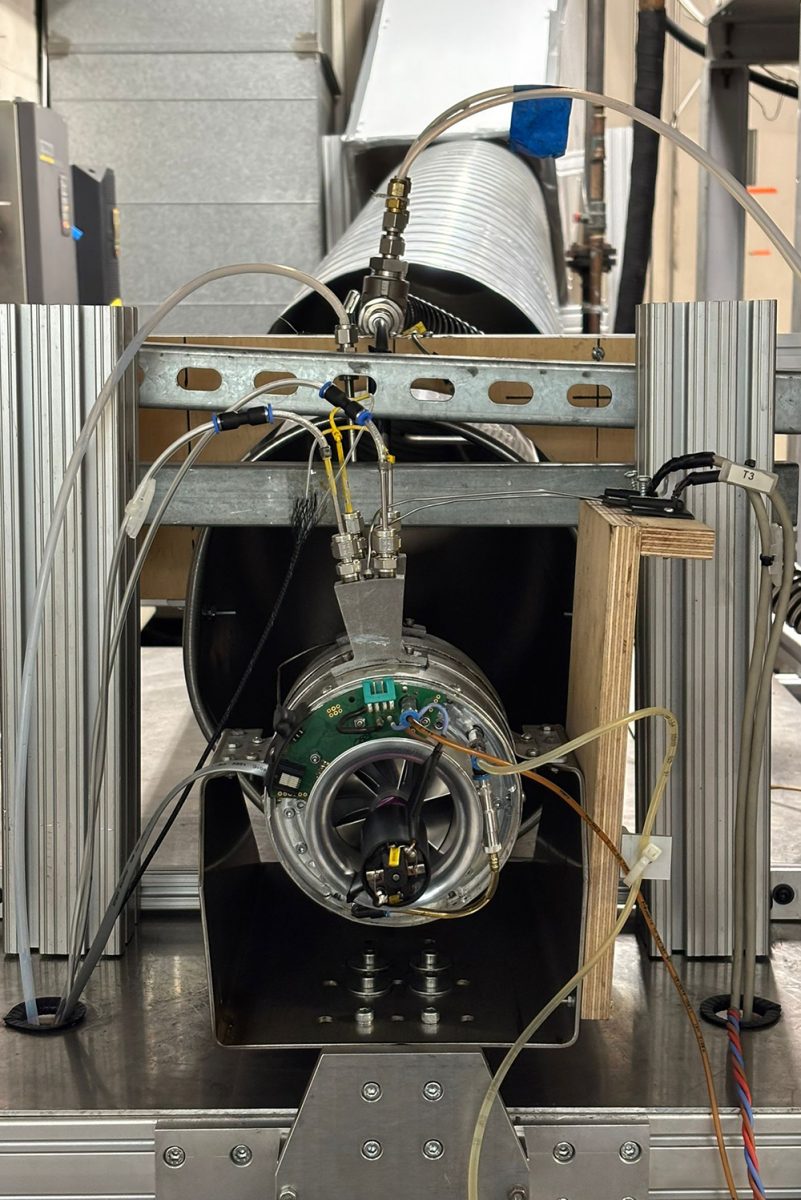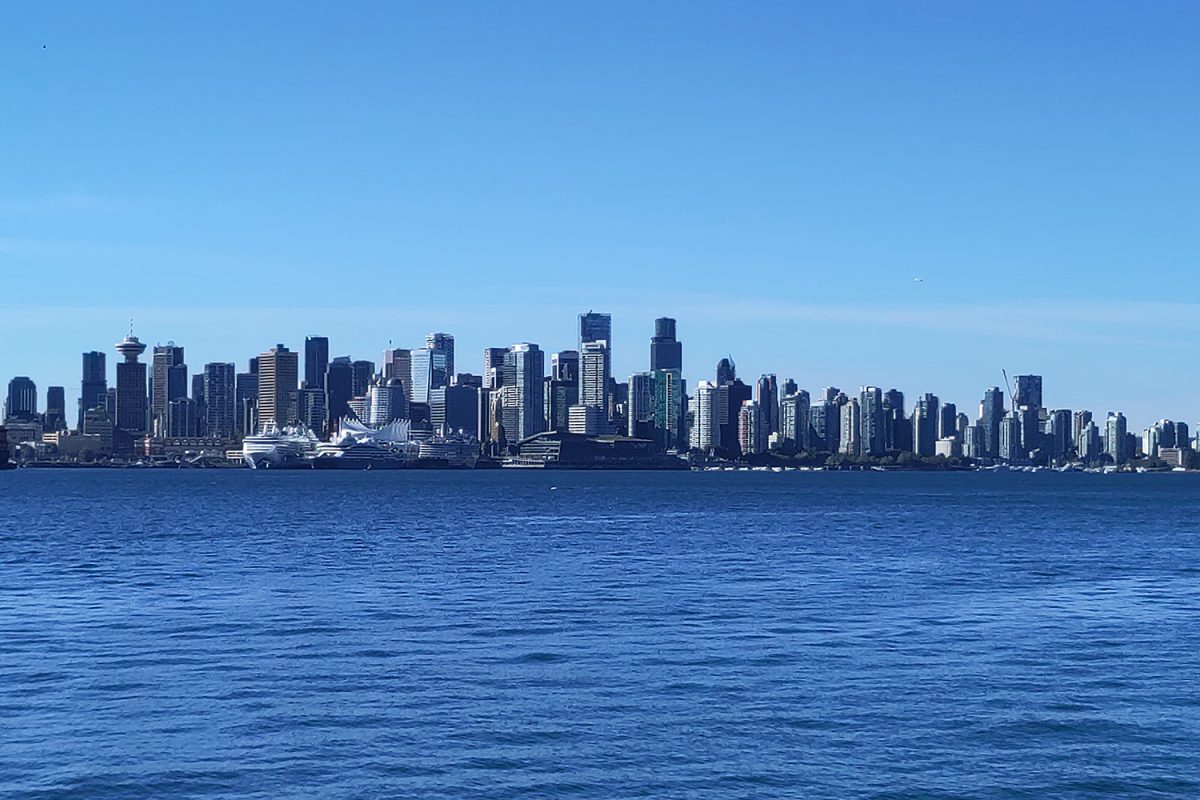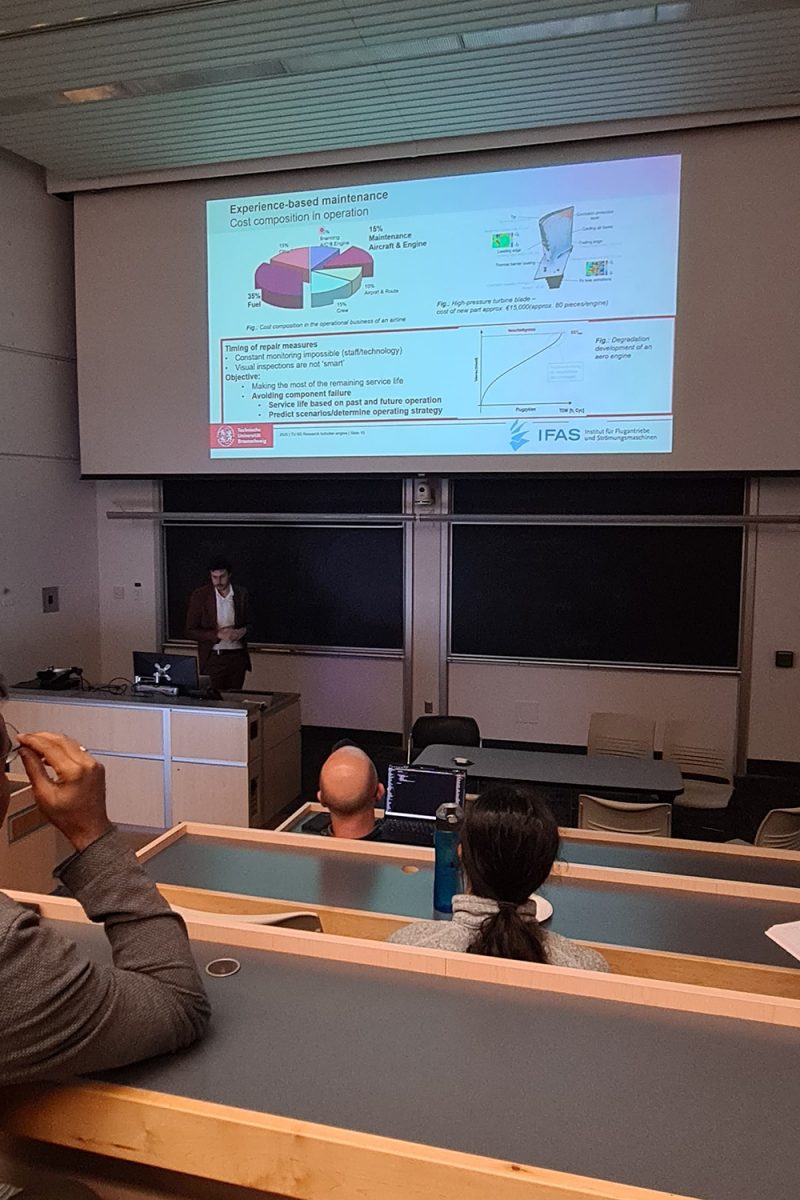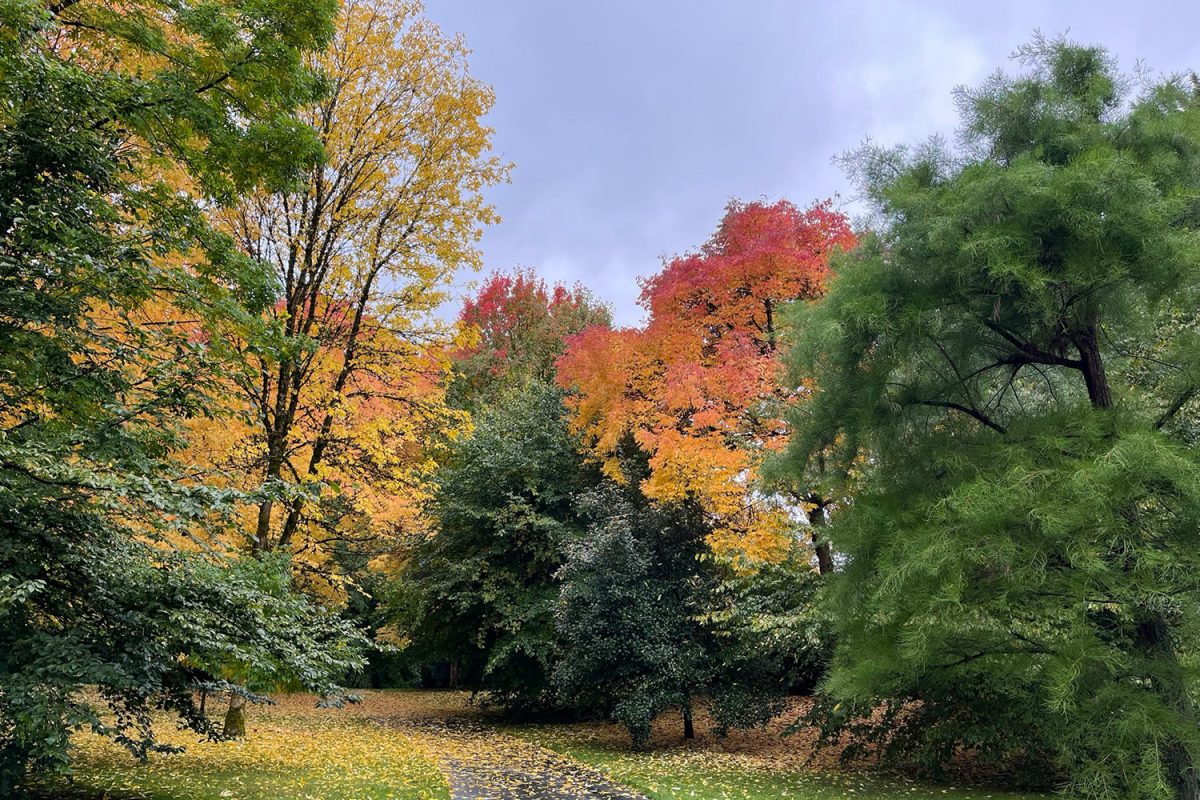Mail from … Vancouver TU employee Jan Göing has been researching at the University of British Columbia since June 2025
General Information
This is why I decided to go abroad:
In my research at the Institute of Jet Propulsion and Turbomachinery (IFAS) at TU Braunschweig, I link jet propulsion and emissions to find out which reduction strategies and alternative fuels are effective. A decisive difference in sustainable aviation between Europe and North America lies in the political orientation: while Europe has increasingly focussed on hydrogen in recent years, drop-in fuels dominate in North America, as these can be used without any modifications to engines or infrastructure.
I decided to go abroad because I wanted to gain direct access to drop-in fuels and the measurement technology required for this, as well as to further my personal development, expand my international network and work with emissions measurement technology.
This is how I organised my stay abroad:
I researched intensively for suitable cooperation partners for my stay abroad and came across Professor Steven Rogak and Professor Patrick Kirchen from the Clean Energy Research Centre (CERC) at the University of British Columbia (UBC). With their expertise in emissions measurement and particle and gas analysis, they offered ideal conditions. After initial discussions, we applied for an MSCA postdoctoral fellowship together with MTU Canada, a long-standing partner of my institute – unfortunately without success. Nevertheless, the initial meetings developed into a regular and growing collaboration with concrete ideas and plans for future joint research, in which industry leaders, such as Boeing, are also involved. Together with Institute Director Professor Jens Friedrichs, I finally decided to go ahead with the exchange in order to really get the collaboration rolling.
There were these challenges or particularly positive experiences during the organisation:
As I am in Vancouver with my family, there were special family-friendly challenges in the organisation. I would particularly like to emphasise the great flexibility and support of both universities: The start date was postponed by ten months, they helped us with the organisation of many private issues and accompanied all steps with great understanding. You can really speak of family friendliness here!
This is how I prepared for my stay abroad:
In preparation, I first defined specific research objectives and set milestones and timelines. At the same time, I regularly exchanged information online with my colleagues at UBC to discuss the progress of the planning and clarify any open questions. I also organised the shipping of the necessary measuring equipment and laboratory components to Vancouver to ensure that all instruments were ready for use on time. The transport of dangerous goods was particularly challenging and required a lot of research. At the same time, I clarified the visa and entry formalities and took out suitable health insurance.
How long does the stay last and what programme is used?
My stay in Vancouver will last twelve months and is funded by the TUBS Postdoc Grant, the SE²A Cluster of Excellence and IFAS.
Life abroad
This is what I do in Vancouver:
Together with Canadian colleagues, I am setting up an international cooperation laboratory in which both research and teaching take place. In this laboratory, I carry out systematic emission measurements behind a micro turbojet engine to characterise particle and gas emissions. At the same time, I am a visiting professor at UBC and give seminars. At the same time, I am working on several project proposals with UBC and industry partners to initiate long-term research projects and further deepen the collaboration between academia and industry.
How does every day working life in Vancouver differ from that in Germany?
In contrast to TU Braunschweig, UBC is a real campus university: almost all buildings, lecture theatres, laboratories, restaurants, supermarkets and halls of residence are close together. The campus is surrounded by Pacific Spirit Regional Park and borders the water – a beautiful setting! I spend a lot more time in the lab at UBC than in Braunschweig. The working environment is extremely interdisciplinary, as chemists, environmental engineers, and mechanical engineers work together at CERC. The test facilities are located in the middle of the campus, which guarantees short distances, but also occasionally leads to noise and odour nuisance. This requires much more willingness to compromise and coordination than in the north of Braunschweig, where the motorway is our institute’s loudest neighbour.
That’s how I live in Vancouver:
Vancouver is very expensive and available rental properties are rare. We live in a flat in the Sunset neighbourhood, which we have rented from extremely friendly landlords. Sunset is known for its mix of Indian and Asian culture, which brings with it a variety of great restaurants, among other things.
What does the end of the day look like in Vancouver?
In Vancouver, the options for families are almost limitless: a walk along the seawall along the coast, a visit to one of the many fusion cafés or trying out dishes from one of the many previously unknown cuisines – there’s something for everyone here.
The biggest challenge so far during my stay:
The biggest challenge of my stay so far was based on the motto “Never change a running system”: completely dismantling a functioning laboratory, packing it in boxes and shipping it to the other side of the world involves enormous effort. Although the laboratory at UBC was up and running again relatively quickly, it took much longer than expected until the engine was running reliably and the results were reproducible.
Good to know
You should definitely try this typical local dish:
Poutine (French fries with gravy and cheese) originated in Quebec, but is also very popular in Vancouver. What I find better here in Vancouver is Japanese ramen soup, Indian dosa and authentic Asian fusion dishes.
This is particularly typical for my country of residence:
Vancouver surprised me with a wonderful, sunny and consistent summer, which I learnt is typical here. Canada is also known for its Indian summer, when the maple trees here in Vancouver glow in every imaginable colour. The city is also very international. What is particularly practical is that you don’t need a car because the public transport system is excellent and there are well-developed cycle paths everywhere – very unusual for North America.
What pitfalls should you avoid in Vancouver?
Ignorance of the national sports of baseball and ice hockey could be described as putting your foot in your mouth. Familiarising yourself with their basic rules not only gives you something to talk about, but also makes it easier to make new friends.
Conclusion
How do the skills and experience you gained abroad help you in your current position at TU Braunschweig?
During my stay in Vancouver, I learnt all the practical steps involved in measuring emissions, from taking samples and calibrating the sensors to analysing the particle and gas data behind a micro turbojet engine. On the one hand, the data is used to validate existing models, and on the other, the knowledge helps me to plan new projects in this area. More important, however, are the contacts I make here to initiate future research projects in the field of sustainable aviation.
This is what my stay abroad brings me personally:
The stay abroad in Vancouver offers me completely new perspectives: I get to know Canada’s impressive nature and diverse culture – from the coast and the rainforests to the cities and the traditions of the First Nations. At the same time, I am working in a different university system with flat hierarchies, close collaboration between different departments and strong industry links. As a result, I gain new insights into other ways of working and thinking, become more flexible and learn to implement creative solutions more quickly.
I will take this home with me:
Oh dear – the suitcases are already too full…
I give this tip to other employees who want to go abroad:
You shouldn’t be discouraged if something doesn’t work out during the planning stage or if you don’t succeed at first. The first steps are often the hardest, but there are usually many opportunities and helpful people who will support you.

